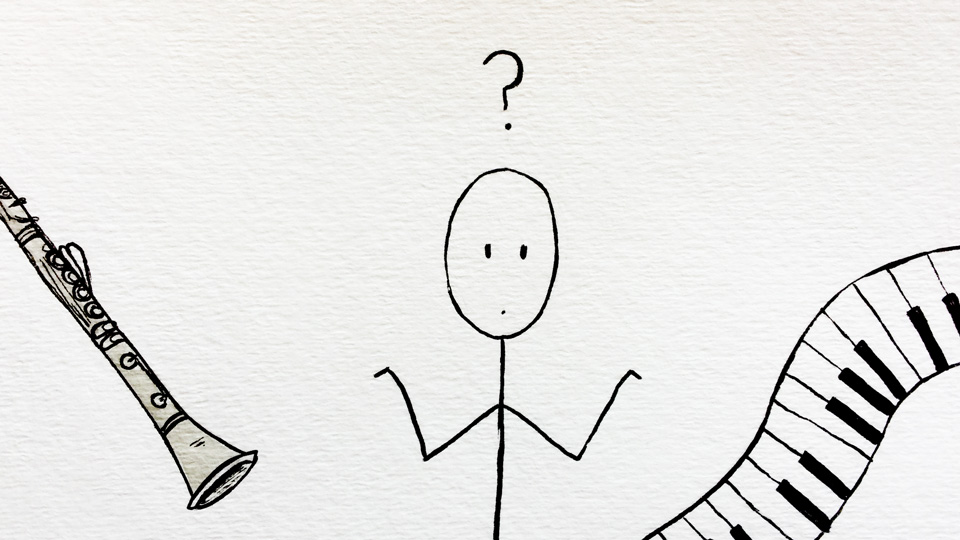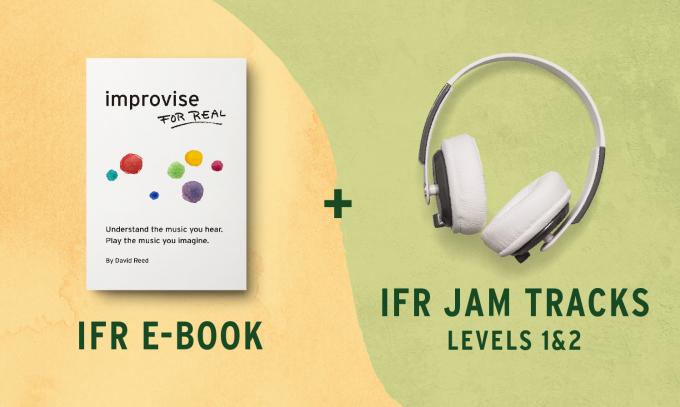David,
I'm really looking forward to beginning IFR! I had very poor piano instruction as a child and spent most of my adult life trying to self-teach on the piano. Nine months ago I took up the clarinet and my progress has been really good. I have more experience on the piano but now my main interest is the clarinet. Do you think I should practice your method on the clarinet, on the piano or both?
Thank you,
Jack
David's response:
Hi Jack,
I think you should start right from the beginning on both piano and clarinet. If you are worried about the piano taking up too much time and distracting you from the clarinet, then you can limit your piano practicing to 10 minutes per day. But there are three wonderful benefits you will get from doing this:
Benefit 1: Get a free "head start" on your second instrument. Over time, even just 10 minutes a day of practicing IFR Exercises 1 and 2 on the piano will give you a huge head start on the piano. Just think of these 10 minutes on the piano as your "free time". You don't need to have any goal with the piano since the clarinet is your main focus now. Just sit down at the piano whenever you feel like taking a 10 minute coffee break, and enjoy exploring the keyboard with IFR Exercises 1 and 2. You may not even notice that your skills are improving since it will be gradual. But after 6 months of this "non-work", you will realize that you can effortlessly visualize all 12 major scales anywhere on the piano keyboard. This will make the rest of your journey on piano much more interesting and enjoyable.
Benefit 2: Learn faster with multiple points of view. Practicing IFR on more than one instrument will actually accelerate your learning because it allows you to see the same harmonic concepts from multiple points of view. This is truly a case where 1 + 1 = 3. You will advance MUCH faster on the clarinet if you are also playing the piano a little bit. So don't think of those 10 minutes per day as time that you "robbed" from the clarinet. Think of that time as a complementary exercise that you perform on the piano as part of your clarinet training.
Benefit 3: You'll be happier with yourself. Psychologically, I think you'll feel better about yourself if you continue to nurture your love of the piano. Don't let the frustrations of the past interfere with the more important story, which is your freedom to enjoy playing the piano. If you weren't able to achieve all your goals in the past, then maybe the way you were practicing wasn't what you really needed. But the piano was never the problem. So don't let anyone else take away your right to play the piano. I would encourage you to reclaim your piano practice and to start by just letting yourself enjoy feeling your hands on the keys. IFR Exercise 1 is the perfect practice for this.
A great way to get your new piano practice started is with my free tutorial series Piano for Non-Pianists. This series gives you short, simple exercises that you can practice each week to gradually build a wonderful foundation for improvising on the piano.
Thanks for your thoughtful question. Please stay in touch and let me know how you are making out. I think you'll find that your piano practice gives you a level of clarity that you are going to really enjoy on the clarinet.
Happy practicing!
David

